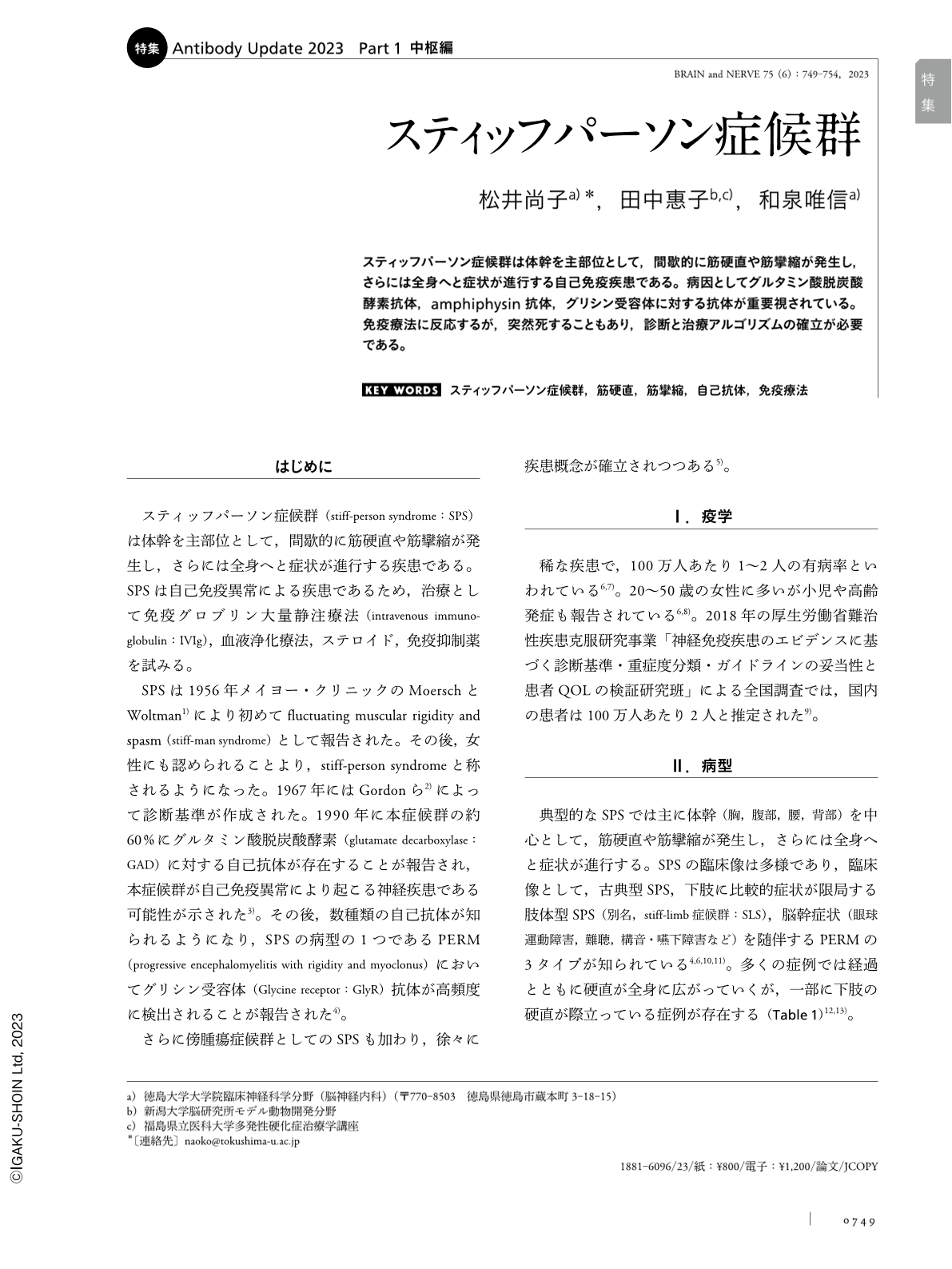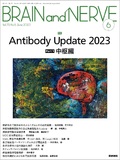Japanese
English
- 有料閲覧
- Abstract 文献概要
- 1ページ目 Look Inside
- 参考文献 Reference
- サイト内被引用 Cited by
スティッフパーソン症候群は体幹を主部位として,間歇的に筋硬直や筋攣縮が発生し,さらには全身へと症状が進行する自己免疫疾患である。病因としてグルタミン酸脱炭酸酵素抗体,amphiphysin抗体,グリシン受容体に対する抗体が重要視されている。免疫療法に反応するが,突然死することもあり,診断と治療アルゴリズムの確立が必要である。
Abstract
Stiff-person syndrome (SPS) is a rare autoimmune neurological disorder characterized by progressive axial muscle stiffness, central nervous system hyper-excitability, and painful stimulus-sensitive muscle spasms. SPS is classified into classic SPS and SPS variants, including stiff-limb syndrome (SLS) and progressive encephalomyelitis with rigidity and myoclonus (PERM), based on clinical presentation. SPS responds to immunotherapy, and several autoantigens have been identified. Most patients with SPS have high-titers of antibodies against glutamic acid decarboxylase (GAD), the rate-limiting enzyme for the synthesis of γ-aminobutyric acid (GABA), and up to 15% of the patients have antibodies against the glycine receptor α-subunit.

Copyright © 2023, Igaku-Shoin Ltd. All rights reserved.


